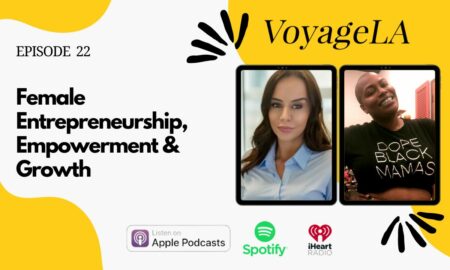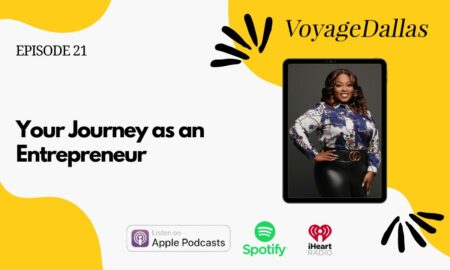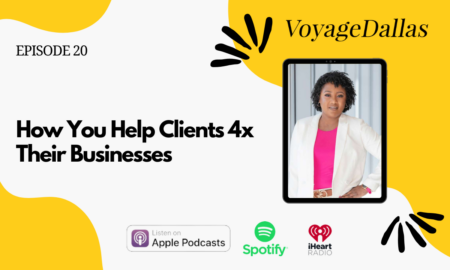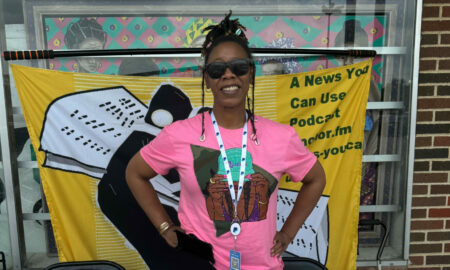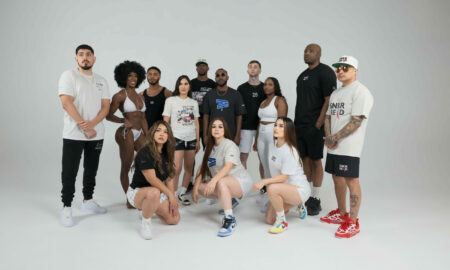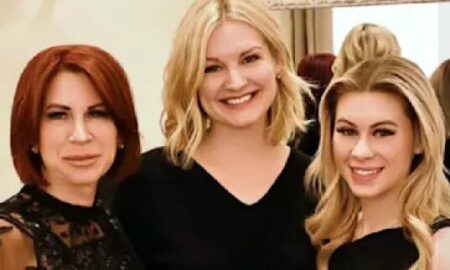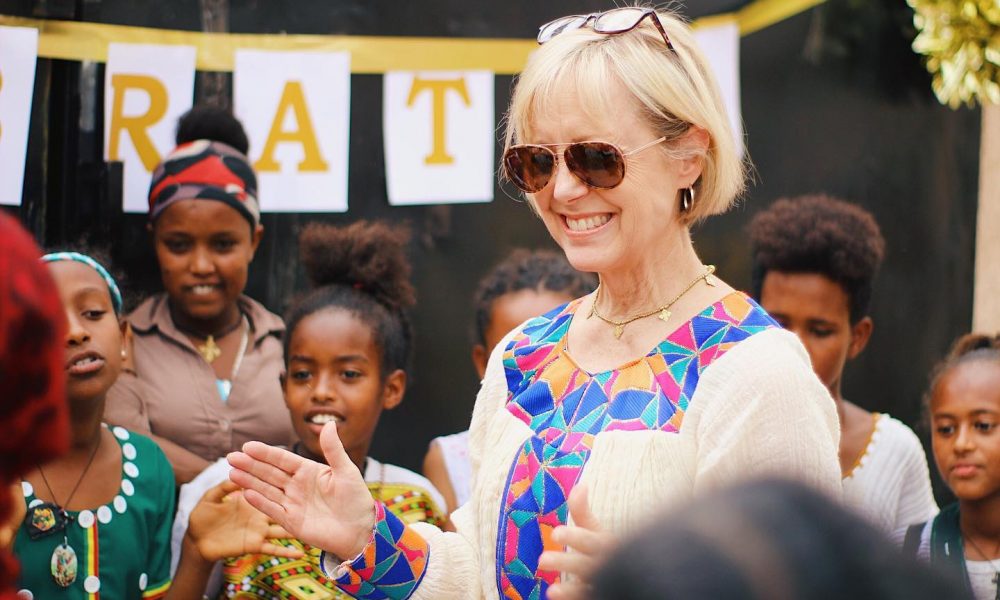

Today we’d like to introduce you to Julie Miller.
Julie, we’d love to hear your story and how you got to where you are today both personally and as an artist.
I wear colorful paper beads regularly, not because I like jewelry, but because of the story behind the beads! They are made by marginalized women in the Adera Foundation program, and I am the Executive Director. The beads are a small portion of our program. We want to prevent another orphan. We want to prevent another woman from human trafficking! The best way to do that is economic development. The beads are a part of their story, their security.
I often find myself at events sitting with various women that see the beads and ask me about them? This has led to interesting conversations that have opened significant doors for sharing the story of the women halfway around the world in Addis Ababa, Ethiopia. I was at an event six years ago and a woman across the table, who was very mid-western, organic mom ask me about the beads. She quickly told me that when she was working on her MBA from Texas Christian University (which I was shocked to learn!), she has the opportunity to travel to Central America and work with Dr. Garry Bruton and a team to develop business for good. That was the first time I learned about “Social Entrepreneurship” and its direct potential for good. I followed up with Dr. Bruton and quickly discovered that he has a team of professors from various universities traveling to Ethiopia to investigate how to build businesses for good. He asked if he and his team could possibly interview five of our moms on potential business ideas to bring them out of poverty! Unbeknownst to me, I was in Ethiopia at the same time and was a part of the interview process. It was an amazing hour that stretched to three. It was five professors from N. America, two from Europe and 25 professors from Addis Ababa University. It was the first time for our moms to have a platform, a voice for their present conditions, and their future potential. The interview led to coming back to TCU and being invited to be a part of a new class in the Neeley Business School, Values Centered Entrepreneurship. This class allowed business majors to explore their business academia in a very raw and complex space halfway around the world. The students considered the limited resources and their personal voice. They went to the campus bookstore and asked for a platform for the beads. This lead to making the beads out of TCU football programs! We upcycled the paper into the beads and the jewelry line. The students had set in motion a platform for upcycling women and their families. The beads have spread to other campuses as well as the Kimbell Art Museum, the Fort Worth Zoo, the American Paint Horse Association, and other local retailers, using their cast-off publications for good. This is a catalyst for our moms having a sustainable income. I want to share two of their stories so that you can hear from the women directly:
Hagere Tegegn is an artisan employed by Adera Designs. She is a mother of three children. Hagere, her husband and one of her sons are HIV positive. Since her childhood, Hagere passed through many challenges. Before joining Adera when she was without work, she used to argue with her husband every day because they didn’t have enough money to take care of their family. He often expressed his anger in abusive behaviors or language. Often her poor health would force her to spend much of the day in bed. She was underweight and had stopped taking care of herself. Hagere had lost hope. Many people assumed she was close to death.
“God changed my story through Adera,” Hagere testified. “After starting to work at Adera, my life has totally changed, and my hope has flourished. The change began with my physical appearance. I gained weight and started to feel whole. I started to take care of myself and wear clean clothes. I now can buy whatever is needed for my children, which makes me feel so proud of myself as a mom. When my husband lost his job for a year, I managed to take care of all the expenses. Now I am bold, and I can defend myself from my husband’s abusive behavior. I have the confidence to participate in any social gatherings in my society. When my neighbors see me they usually use a saying in Amharic, ‘A person’s look tells you how he lives.’ Which means your physical appearance testifies how your life is. When I wake up in the morning, I am no longer worried about my husband’s insults or arguments because I have friends that I spend the day with, which makes me laugh and enjoy my life. All this has happened because of Adera. Adera gave me my life back.” Hagare Oct 2016
Almaz Tumiso is a mother who works for Adera’s bead program. She has two children. After the birth of her first child, she earned money by washing clothes at people’s houses. But having two babies hindered her from working, so she turned to beg and collecting trash at the dump. Fortunately, an organization paid for her first child’s school fee so Almaz could collect waste while carrying the younger child. Her first child used to take food to school from the dump, so the school suspended him because of the spoiled food and lack of personal hygiene. Since she couldn’t pay her rent, the three of them lived under the stairs of a building. Once her little girl was crying for hours because of hunger, but she didn’t have anything to feed her. In complete despair, Almaz decided to kill her child and started to roll a rope around the baby’s neck. Thankfully, a Christian woman came to visit her and saw what Almaz was doing. She took the baby from her, comforted her, and gave her food and clothing. After a few months, her baby was invited to join Adera, and Almaz was offered a job with Adera.
Here is her life story: “From the day I received a salary from Adera, I quit going to the dump. I rent a small house and start to cook food for my child, who goes to school. My physical appearance totally changed, and I gained contentment and peace. I began to consider myself equal to other women. I started dressing up and taking care of myself. I gained friends who really care about me and help me with my needs. Before I joined Adera wherever I went, people saw me covered in dirt and followed by flies, but now they see me carrying a bag like other women.”
Adera recognizes we cannot do everything for everyone, but we can prevent one more orphan when their parent is actively employed. We can prevent one more woman being trafficked when she is secure in her work.
I am a 60-year-old woman who gets to share the story of these powerful women to the university student on trips to Ethiopia, through DFW local events, through my personal voice. DFW cares about the world and wants to invest in being a part of its solution, part of the prevention, one family at a time. The immigration issue is a very hot topic, but what if we have it all wrong! What if the solution is building economic strength in other countries, so the enticement to come to the USA is not their first response? What if we who have been given so much in the form of education and experiences could use those tools to impact a woman and her children for good! Adera is seeking ways for economic development to change one woman at a time. Interestingly the women we work for all lived on and around a large landfill, it is the size of 89 football fields and 5-6 stories tall, they forged the trash for their daily sustenance. Today 19 women sit in a secure building and use discarded papers to make their living wages, one bead at a time!
We’d love to hear more about your art. What do you do and why and what do you hope others will take away from your work?
I think my greatest strength is connecting people! I love seeing the potential and then introducing them to someone farther down the road! It is so fun to play the PVC pipe, the connector. Friday, I am having an introduction luncheon for women of business in Fort Worth, TX that have had the education and the experiences that have allowed them to reach success. We are going to sit at a large conference table and use a business canvas map to consider how they can use their personal stories for good! How they could impact women for women! I look forward to connecting them in a global challenge and stepping back and seeing how they assimilate their personal stories and experiences into a global initiative with our new Open Door Business program.
I think that my greatest vision is the potential to be proactive rather than reactive to women. Our women in Ethiopia are one step away from placing their children in the government orphanage. Not because they do not love them but because they do love them! If you cannot provide for the daily needs of your child, then you will do anything to make that a reality.
Also, many of our moms are tempted to buy into the lie of the local “broker” and go to the middle east for work. Work that is said to promise them more income and opportunities. But they do not understand that they will land in Dubai, be taken into a room, passports will be confiscated and they will be “selected” by the opportunist for the work of their choice, the limited hours of their master, and facilities of their choice!
Then so many of our moms have been forced to move in with a worthless man just to put a roof over their heads and to have a “home” for their child. They will then find themselves pregnant and HIV positive! Then abandoned!
Economic development and security is a proactive means to stop these chains of events, one woman at a time. One family at a time.
Adera desire is to preserve the family; one of the key elements is economic development.
The sterotype of a starving artist scares away many potentially talented artists from pursuing art – any advice or thoughts about how to deal with the financial concerns an aspiring artist might be concerned about?
My family was very open-handed! We always had “extras” at the table or living in our home. We were encouraged to bring home anyone who was in trouble or just needed a bed for the night.
Contact Info:
- Address: 2901 Riverglen Dr.
Fort Worth, TX 76109 - Website: www.aderafoundation.org
- Phone: 8172690719
- Email: juliemiller@aderafoundation.org
- Instagram: https://instagram.com/aderadesigns?igshid=kvho8cdjfnlm
- Facebook: https://www.facebook.com/aderafoundation.org/
- Other: www.aderadesigns.com







Image Credit:
Ronnie Mosley
Suggest a story: VoyageDallas is built on recommendations from the community; it’s how we uncover hidden gems, so if you or someone you know deserves recognition please let us know here.












